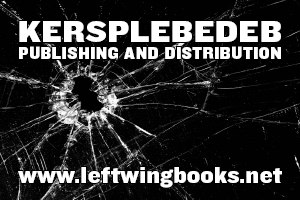Response to Akili’s Letter
BY ROBERT PHILLIPE
Dear Mr. Laaman/4strugglemag:
In Akili’s letter he asked how we – the hip hop generation – fit into the struggle to support political prisoners and prisoners of conscious? First, I believe we need to defend all political prisoners that have fallen victim of state repression. Whatever may be the facts of the political accusations against them, it is our moral and political duty to support them. However my feelings waiver when it comes to prisoners of conscious since most of them became conscious only after incarceration, and have not been tried and tested as political prisoners have.
Supporting political prisoners means we must defend their political ideas whether they were correct in principal, ill-timed, or even counter productive. Nevertheless, many of the hip hop generation have few illusions about political prisoners’ ideas of freedom from oppression and exploitation by any means necessary, and the concrete consequences they have. Yet, what matters, and what the hip hop generation fails to realize, is that political prisoners had the courage to act on their ideas and convictions. In other words, they had the courage to defend the community and fight oppression. This courage is nowhere present in the hip hop generation.
Speaking from the perspective of a hip hop generationer and that of a prisoner of conscious, the hip hop generation is blind to the massive structural violence which mars our society and which they contribute to with their negative lyrics and materialist imagery, and they’re blind to those in power who use hip hop as a means to maintain their social positions and maximize their profits.
The hip hop generation is so caught up in the proliferation of gangsta rap that it has become our mentality and corrupted our youth. The conscious era of the sixties and seventies is lost on many of us who are concerned only with living the life¬style portrayed by hip hop. Consequently, the message of con¬scious rappers is all but drowned out.
To concern ourselves with the issue of political prisoners means putting theory back on its feet. By this I mean taking on the responsibility of acting on our ideas and convictions just as our political prisoners have done. However, today’s hip hop generation is blind to how this can be done. Therefore, we remain ignorant to it by regarding consciousness as a taboo. Yet, today, as in the past, consciousness is the language of preparation and application. It is imperative to break through all the litanies and spectacular traffic of hip hop and reappropriate practical theory. Without social consciousness and its application, the advocation and support of political prisoners remains rhetorical.
Our role in supporting political prisoners therefore begins with self since we lack social consciousness. This, of course, suggests that our role should be that of students, to facilitate forward movement in the struggle. Only with a conscious state of being and the political awareness of the world around us can we see what’s expected of us. Without this and the application of practical theory, the hip hop generation is destined for nothing more than continued booty shaking.
Respectfully,
Robert Phillippe, #97A4305
Sullivan correctional Facility
P.O. Box 116
Fallsburg, New York 12733-0116
